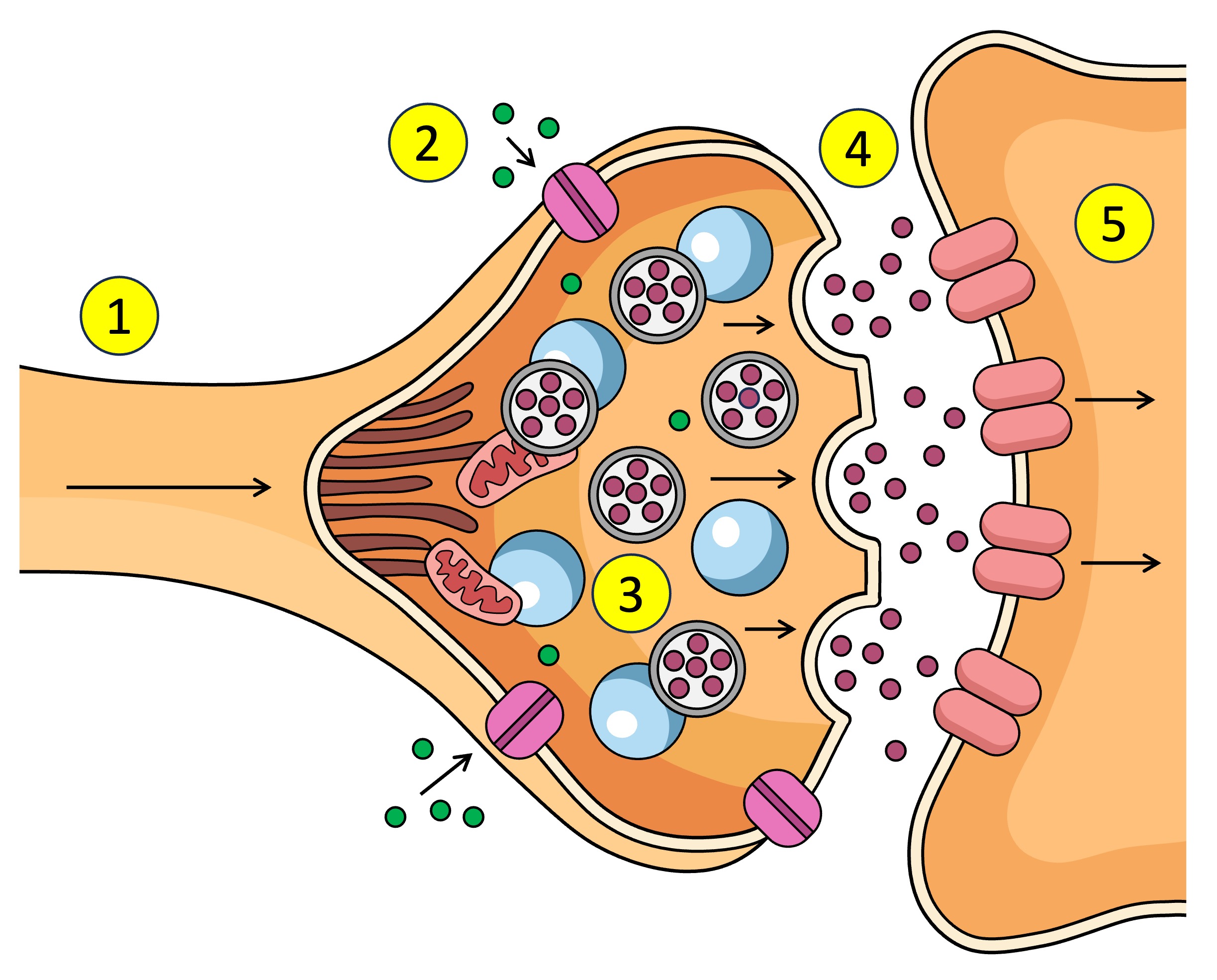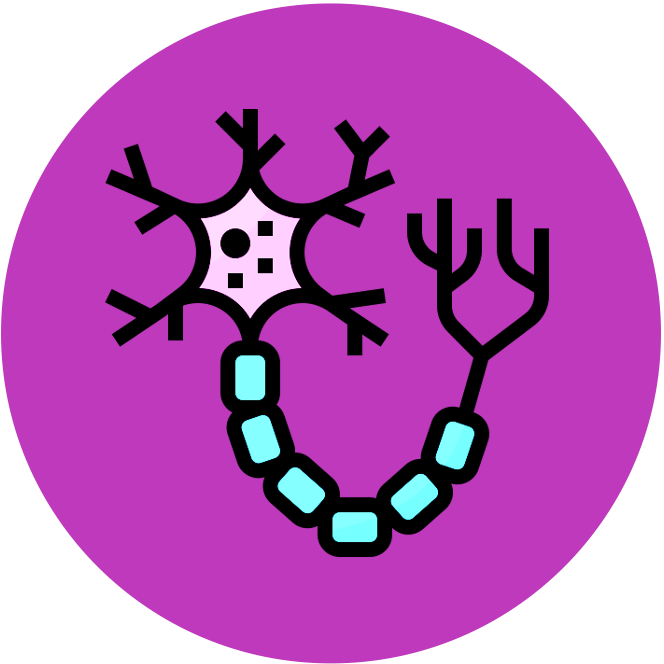

Synaptic Transfer
Nerves transmit electrical impulses by changing the ionic distribution across the neuronal membrane (i.e. changing the membrane potential)
-
Therefore, electrical signals are not able to be conducted when a semi-permeable membrane is absent
Synapses are the physical gaps that separate neurons from other cells (either other neurons or the receptor and effector cells)
-
Neurons transmit information unidirectionally across synapses by converting the electrical signal into a chemical signal (called a neurotransmitter)
Synaptic Transfer
The release of neurotransmitters from a pre-synaptic neuron involves a number of steps:
-
When an action potential reaches the axon terminal, it triggers the opening of voltage-gated calcium channels
-
Calcium ions diffuse into the cell and promote the fusion of vesicles (containing neurotransmitter) with the cell membrane
-
The neurotransmitters are released from the axon terminal by exocytosis and diffuse across the synaptic cleft
-
Neurotransmitters bind to specific receptors on the post-synaptic membrane and open ligand-gated ion channels
-
The opening of ion channels generates an electrical impulse in the post-synaptic neuron, propagating the pre-synaptic signal
-
The neurotransmitters released into the synapse are either recycled (by reuptake pumps) or degraded (by enzymatic activity)
-
Signalling Between Neurons






